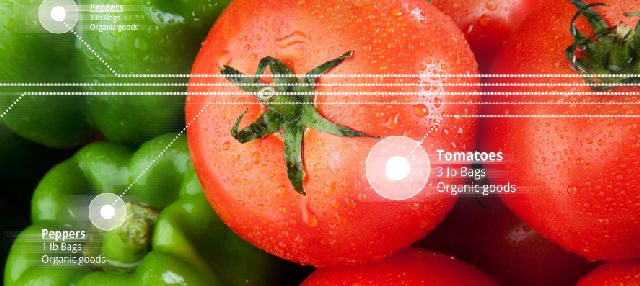–
–
Will you offer us a hand? Every gift, regardless of size, fuels our future.
Your critical contribution enables us to maintain our independence from shareholders or wealthy owners, allowing us to keep up reporting without bias. It means we can continue to make Jewish Business News available to everyone.
You can support us for as little as $1 via PayPal at office@jewishbusinessnews.com.
Thank you.
/ By Adam Van Heerden /
Say goodbye to tedious shopping lists and aggravatingly long lines at the supermarket’s checkout counter: Smartli, an Israeli-based startup, has developed an automatic grocery shopping system that uses sensors to track which items are missing from your fridge, generates a personalized shopping list, and ensures that these items are delivered directly to your door at your preferred time.
According to an online survey conducted by Harris Interactive, 15 percent of US adults have shopped for groceries online, and an additional 19 percent say they don’t currently, but plan to in the future. Additionally, the survey reveals that one of the main impediments to online grocery shopping is the difficulty of creating a shopping list without seeing the items before your eyes. It is within this context that Smartli enters the arena.
Smartli is the brainchild of serial entrepreneur Iri Zohar, and is the application of the Internet-of-Things (a digital future in which objects are identified by and connected to the internet) in the world of grocery shopping. He tells NoCamels: “I really like the advanced technology aspect of the Internet-of-Things (IoT) and I really like the consumer value… doing something which adds value.”
A smart fridge that creates its own shopping list
Smartli uses IoT sensors, which “take an inventory” of the current groceries in your fridge. Then there is a “very advanced data mining engine, which looks at your consumption and figures out what you’re going to need without you having to do any work… It will combine what you have and what you need and come up with this week’s shopping list.” All that is required is for the user to approve the automatically generated list. The result, simply put by Zohar, “someone comes to your house and gives you everything you need.”
Moreover, Zohar is careful to mention that “we give you control, but it’s your choice how much control you want.” By this he means that the Smartli user is at liberty to modify the automated shopping list, by accessing it through his smartphone or computer.
But Zohar believes tools like Smartli won’t remove the human interaction aspect completely: “People who buy online, usually still buy many things offline… and I think that’s still going to be the case.” He is not worried about the “trillion dollar industry” of in-store grocery shopping.
Taking on the US market
Rather, Zohar envisions a future in which the supermarket will become a “more fun and engaging experience.” Customers will still go to the supermarket for the “stuff that people really like to touch and see and choose… the fresh fruits and vegetables, meat and bread, ” but they will be able to avoid “carrying the heavy boxes” through technologies like Smartli.
Smartli recently received $277, 000 from Michael Kattan (a member of the prominent banking family Safra), which accounts for the bulk of their funding. Other funds come directly from Zohar and other members of the company.
Smartli is currently conducting pilot projects in Israel and the US and their main focus remains in the US, “a convenient lab to test out technologies, ” according to Zohar. Smartli plans to launch a more robust pilot in the US in 2014, but Zohar would not reveal any details.




